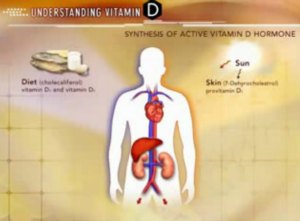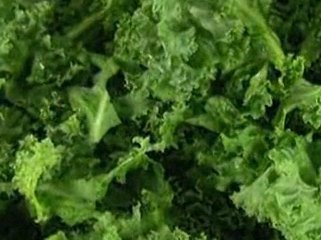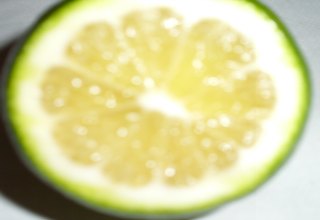- Home
- Natural Remedies
- Vitamin C And Diabetes Benefits
Vitamin C And Diabetes Benefits
Vitamin C is a highly recommended vitamin especially when there is a “flue storm” around. It is the most commonly used vitamin to prevent or ease the flue (cold) onset.
Nowadays, with this Covid-19 pandemic, it use has been highly prescribed and recommended.
Each disease can be positively affected by vitamin C intake, including diabetes. In, the following paragraphs we will discuss about all these benefits.
What is vitamin C?

Vitamin C is a water-soluble vitamin. It is also known with the scientific name of ascorbic acid.
It can be naturally found in some food, and/or added to dietary supplements.
However, human-beings cannot synthetize vitamin C inside their body.
That's why it is very important to take it through foods or supplement (from external sources).
Antioxidants and Blood Sugar Level Effects
What is an antioxidant?
An antioxidant is a type of protective substance preventing or slowing the damages that free radicals cause to the body cells. They are also called free radical scavengers (FRS) or Reactive Oxygen Species (ROS).
They can be naturally produced by our body, also called endogenous antioxidants.
While producing outside the body, they are called exogenous antioxidants.
They can be naturally found in plant-based foods, and also known as phytonutrients.
They can also produced artificially by mankind through various supplements.
What is an oxidative reaction?
Oxidative stress is a phenomenon caused by an imbalance between production and accumulation of oxygen reactive species (ROS) in cells and tissues and the ability of a biological system to detoxify these reactive products (1).
Actually, an oxidative reaction occurs because of some factors such as high levels of your blood cholesterol, high levels of blood sugar, smoking, the surrounding pollution, and radiation.
The free radicals will be generated in your body under the effects of all these factors. As a consequence, several harmful chemical reactions are generated in your body, which lead to severe diseases like heart disease, arthritis, cancer, diabetes aggravation.
But, as everything in our body is balanced, here comes the role of antioxidants. In reality, the antioxidants are some body substances, which forbid (cut) the chain of further oxidation of these chemicals.
Effect of antioxidants on blood sugar levels
With regards to diabetics, due to uncontrolled blood sugar levels, these "bad" oxidation reactions are exceeded.
"Diabetics should maintain a healthy blood sugar control, because that’s going to prevent a lot of oxidative stress” (2)
Oxidative stress, inflammation and endothelial dysfunction are interrelated factors in the etiology of cardiovascular disease, while higher circulating levels of oxidative stress, inflammatory and endothelial dysfunction biomarkers clearly precede the development of T2D. (2)
This is why we encourage diabetics to increase intake of vitamin C as an antioxidant.
Other Benefits of Vitamin C
Normal skin contains high concentrations of vitamin C, which supports important and well-known functions, stimulating collagen synthesis and assisting in antioxidant protection against UV-induced photo-damage. (3)
Collagen is a type of protein that gives strength to your body bones, muscles, ligaments, cartilages, blood vessels and teeth.
Vitamin C and nitric oxide (NO) amplification
There are multiple studies confirming the amplification of NO production by Vitamin C (4). It is a complicated process, I don't want to mention here.
But, the result of this, it can help you reduce the blood vessels spasms diminishing the risk for heart attacks and related heart diseases.
Here it is why: NO (nitric oxide) control microcirculation and vascular tone in the skin.
It helps relaxation of smooth muscles of blood vessels in the skin causing vasodilatation. By reducing blood vessel spasms, it will reduce the risk for angina or other heart disease.
As a diabetic, you may face gum problems, muscles weakness, and difficulties in the healing of different wounds, especially skin wounds.
Vitamin C plays a crucial role in reducing all these problems because this vitamin interferes in all stages of healing process.
In addition, as a diabetic you can face other several diabetes complications in your kidneys , eyes and nerves.
This is because of the accumulation of free radicals in these organs of your body. Vitamin C can interfere by reducing the production of these substances, and practically, protecting from severe diabetes complications.
Explore more vitamins And Minerals.
Where can you find vitamin C?
Buying vitamin C in a drug store is not the only source where you can get vitamin C.
I do encourage and recommend the natural intake of vitamin C through foods you eat, where fruits and vegetables are those with the highest content in ascorbic acid.
Below, I have shown the top six foods with the highest content in vitamin C according to USDA nutritional data base.
Top Eight Foods With Highest Content In Vitamin C

Food no.1:
Chillies : Red, White, Yellow, every type of hot chillies is rich in ascorbic acid.
100 mg of red chillies contain around 143.7 mg of vitamin C. while 100 mg of yellow chillies contain 242.5 mg.
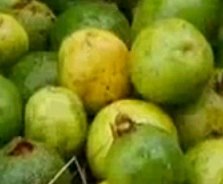
Food no.2:
Guava: one half-cup of the fruit equals 188 mg of vitamin C.
Around 100 g of guava does contain around 228.3 mg of vitamin C.
|
Food no.3: Peppers raw: 100 g of Yellow peppers contain 183.5 mg of vitamin C; while red and green contain 143.7 mg and 80.4 mg respectively. |

Food no.6:
Green Kiwifruit raw: 100 g contain only 92.7 mg of ascorbic acid.
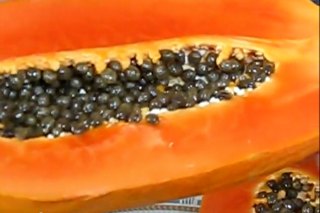
Food no.7:
Papaya: I ate papaya for the first time in my staying in South-East Asia.
At the beginning, I did not enjoy it very much.
But, at the end, I could not resist to go to the local fruit markets or supermarket and not to buy at least one papaya:))
100 g of papaya contain 80,9 mg of vitamin C by the way.
|
Food no.8: Orange: 100 mg of peeled orange contain around 53 mg of vitamin C; while raw orange juice has 50 mg. At the end, it has not that much of vitamin C as the other foods above although the myth of high content vitamin C in citrus fruits. |
This is not the complete list. There are many other fruits like broccoli, currant, sprout, cabbage, strawberries, cantaloupe, etc., as good sources of ascorbic acid when added to your daily diabetic meal plan.
Great way to beat diabetes and its complications too!
What is the daily dosage intake of vitamin C?
Recommendations advise diabetics not to exceed the amount of 250 mg per day of vitamin C.
This is to avoid the opposite effects of vitamin C (overload or side effects) when taken higher than normal dose.
That means that, in stead of having the antioxidant effect, you may accidentally generate the oxidant effect and worsen your body condition already altered by diabetes.
This is what happens if vitamin C is take through supplements, and not through foods like fruits and vegetables.
As there is limitation in taking Vitamin C supplementation, on contrary, there is no limit of taking it through the vitamin C-rich food sources.
Resources for Vitamin C facts:
(1) Oxidative Stress: Harms and Benefits for Human Health
(2) Oxidative stress, inflammation, endothelial dysfunction and incidence of type 2 diabetes
(3) The Roles of Vitamin C in Skin Health
(4) Vitamin C and NO amplification
(5) Vitamin C Fact Sheet for Consumers - Vitamin C, also known as L-ascorbic acid, is a water soluble vitamin. it is naturally present in some foods, and added to others.
(6) Foods rich in vitamin C - USDA nutritional data base
(7) Dietary Recommendation for daily Vitamin C intake - as per Institute of Medicine, Food and Nutrition Board
(8) 50% Daily Value Vitamin C Supplement - This maintance dosage is widely recommended for diabetic. Get vitamin C in a clinically relevant dose for diabetics.
|
Written by Dr.Albana Greca Sejdini, Md, MMedSc Medically reviewed by Dr.Ruden Cakoni, MD, Endocrinologist |
Last medically reviewed 10/30/2023 |
See also already answered questions about Vitamin C for diabetes
Please advise whether I can take vitamin C pills instead of taking fruits?
Related videos
Diabetes complications Questions or Problems? Get Help Here
This is the place where you can ask a question about any aspect of diabetes complications.
It's free and it's easy to do. Just fill in the form below, then click on "Submit Your Question".


